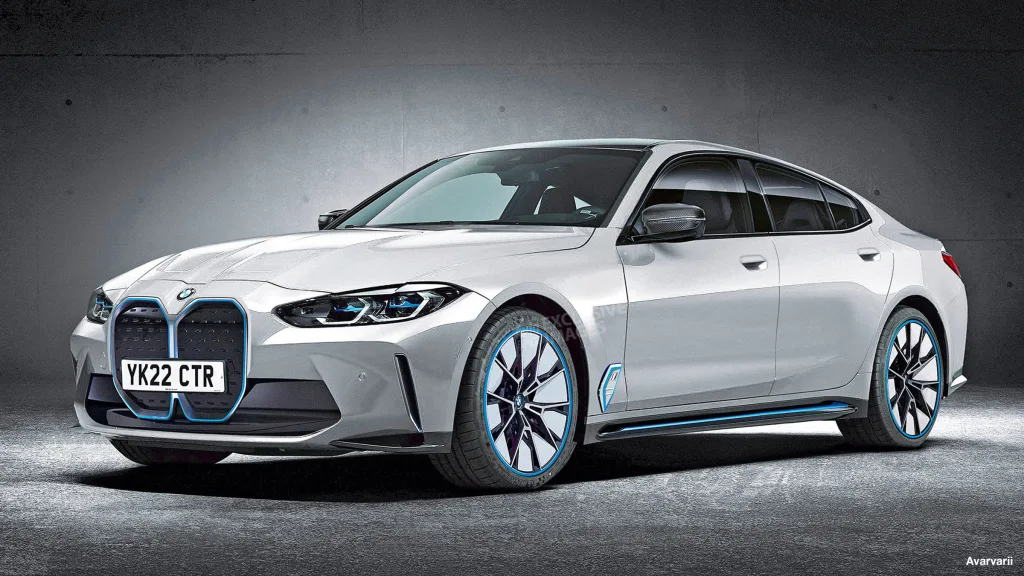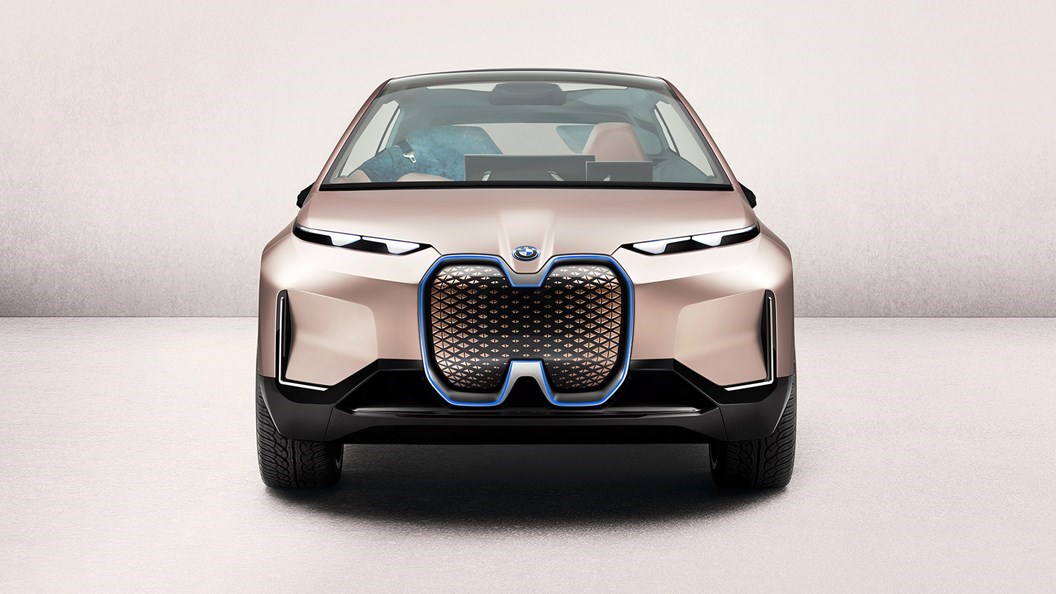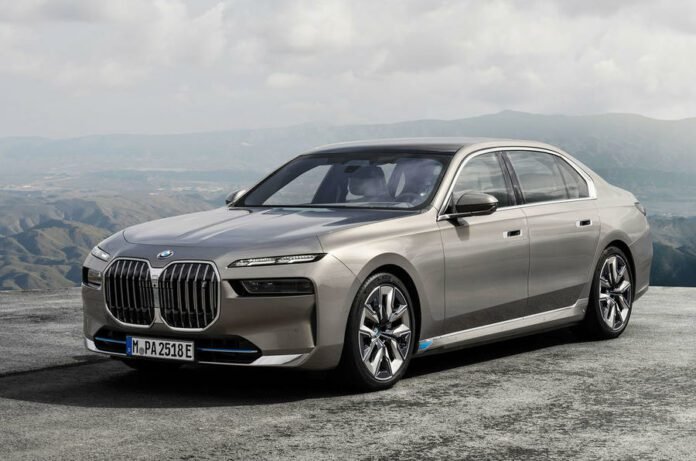In a stunning turn of events that has sent shockwaves through the automotive industry, BMW has achieved what many thought impossible just a few years ago. The German automaker has overtaken Tesla in electric vehicle (EV) sales, marking a seismic shift in the EV market landscape. This development not only highlights BMW’s remarkable progress but also signals a new era in the fiercely competitive world of electric mobility.
Table of Contents
BMW’s Rise to the Top: A Story of Strategy and Innovation
BMW’s journey to the pinnacle of EV sales is a testament to the company’s forward-thinking approach and unwavering commitment to electrification. The automaker’s success didn’t happen overnight; it’s the result of years of careful planning, substantial investments, and a keen understanding of evolving consumer preferences.
At the heart of BMW’s triumph lies a diverse and appealing lineup of electric vehicles. Models like the sleek iX2 and the luxurious i7 sedan have captured the imagination of consumers, offering a perfect blend of performance, style, and sustainability. This varied range has allowed BMW to cater to a wide spectrum of buyers, from eco-conscious urban dwellers to luxury car enthusiasts looking to make the switch to electric.
But it’s not just about the products. BMW’s flexible manufacturing strategy has played a crucial role in its ascent. The ability to produce EVs alongside conventional vehicles has given BMW a significant edge, allowing for rapid adjustments to market demands and ensuring profitability in the EV segment – a feat that has eluded many of its competitors.

BMW Sales Performance Analysis: Numbers That Speak Volumes
The numbers tell a compelling story of BMW’s meteoric rise. In July 2024, BMW sold 14,869 electric vehicles in Europe, surpassing Tesla’s 14,561 units for the first time. This represents a staggering 35% year-over-year increase for BMW, while Tesla experienced a 16% decline in the same period.
Even more impressive is BMW’s global performance. In the first half of 2024, BMW ranked third worldwide in plug-in vehicle sales, moving an impressive 212,000 units. This puts them in the company of industry giants, trailing only Tesla and BYD.
These figures aren’t just statistics; they represent a fundamental shift in consumer preferences and market dynamics. BMW’s EV sales have reached unprecedented heights, marking a significant shift in the electric vehicle market. The company’s market share in Europe has grown from 7.9% to 9.9% in just one year, a clear indication of its growing dominance in the EV sector.
BMW Electric Vehicles: The Driving Force Behind Record-Breaking Sales
The success of BMW’s electric vehicle lineup is nothing short of remarkable. Models like the iX1, i4, and iX2 have become the cornerstones of BMW’s EV strategy, each contributing significantly to the company’s sales figures. In July 2024 alone, the iX1 saw 4,305 registrations in Europe, closely followed by the i4 with 4,198 units. The newer iX2 also made a strong showing with over 1,300 registrations.
These numbers aren’t just impressive on paper; they represent real people choosing BMW electric vehicles over other options in the market. The appeal of these models lies not just in their electric powertrains, but in their overall package – combining BMW’s renowned driving dynamics with cutting-edge technology and sustainable mobility.
Tesla EV Sales Face Challenges as BMW Takes the Lead
While BMW celebrates its newfound leadership position, Tesla finds itself facing unprecedented challenges. Once the undisputed king of the EV world, Tesla is now grappling with a changing market landscape and intensifying competition.
Tesla’s decline in sales has opened up opportunities for competitors like BMW to capture a larger portion of the EV market. In Europe, Tesla’s market share has dropped from 13.1% to 11.4% in the span of a year, a significant decrease that reflects broader challenges for the American automaker.
Several factors contribute to Tesla’s current struggles. Increased competition from traditional automakers like BMW, who are now producing compelling electric vehicles, has eroded Tesla’s first-mover advantage. Additionally, Tesla’s product lineup, while still popular, is aging compared to newer offerings from competitors.
It’s important to note, however, that Tesla still maintains a strong position globally. In the first half of 2024, the company sold an impressive 625,000 units worldwide. The question now is whether Tesla can regain its momentum in the face of strengthening competition.
Shifting EV Market Share: BMW’s Strategic Rise and Tesla’s Response
The EV market share landscape is evolving rapidly, with BMW gaining ground and reshaping industry dynamics. This shift is not just about two companies; it reflects broader changes in the automotive industry as a whole.
BMW’s success demonstrates that traditional automakers can successfully transition to electric mobility when they commit fully to the change. The company’s ability to leverage its existing brand strength, manufacturing capabilities, and dealer network has proven to be a winning formula.
For Tesla, the challenge now is to respond to this increased competition. The company has plans for new models and updates to its existing lineup, which could help it regain lost ground. However, the days of Tesla’s unchallenged dominance in the EV market appear to be over.

The Road Ahead: Future Outlook for the EV Market
As we look to the future, the EV market promises even more excitement and innovation. Analysts predict that BMW could increase its EV market share to over 25% by the end of 2025, further solidifying its position as a leader in the space.
The broader EV market is also set for substantial growth. In the United States alone, the EV market is expected to grow from $206.76 billion in 2024 to $537.53 billion by 2033, with a compound annual growth rate of 11.20%.
However, challenges remain. The development of charging infrastructure, particularly in rural areas, will be crucial for continued EV adoption. Government policies and incentives will also play a significant role in shaping the market’s future.
As the battle for EV supremacy continues, one thing is clear: the beneficiaries of this intense competition will be consumers, who can look forward to more choices, better technologies, and potentially lower prices in the electric vehicle market.
BMW’s triumph over Tesla in EV sales is more than just a headline; it’s a sign of a maturing market where innovation, strategy, and execution are key to success. As we move forward, the electric vehicle landscape will undoubtedly continue to evolve, promising an exciting future for both automakers and consumers alike.
FAQs:
How did BMW manage to outsell Tesla in EV sales?
BMW achieved this milestone through a combination of strategic planning and innovative product offerings. In July 2024, BMW sold 14,869 electric vehicles in Europe, surpassing Tesla’s 14,561 units. This represents a 35% year-over-year increase for BMW, while Tesla experienced a 16% decline. BMW’s success is attributed to its diverse EV lineup, including popular models like the iX1, i4, and i5, which have seen substantial sales increases.
Is this a one-time event or part of a larger trend?
While it’s too early to call it a definitive trend, BMW’s success appears to be part of a larger shift in the EV market. The company has been steadily gaining ground, with its market share in Europe growing from 7.9% to 9.9% in just one year. However, it’s worth noting that Tesla still leads in year-to-date sales, with 178,700 vehicles sold compared to BMW’s 97,525. This suggests that while BMW is making significant strides, Tesla remains a formidable competitor in the EV space.
What specific BMW models contributed to this success?
BMW’s recent success can be attributed to several key models:
iX1: 4,305 registrations in July 2024
i4: 4,198 registrations in July 2024
iX2: Over 1,300 registrations in its debut month
How has Tesla responded to this competition?
Tesla hasn’t publicly responded to this specific event, but the company continues to innovate and expand its product line. It’s worth noting that Tesla still maintains a strong position globally, selling approximately 625,000 units in the first half of 2024. However, Tesla’s market share in Europe has dropped from 13.1% to 11.4% over the past year, indicating increased competition in the region.


